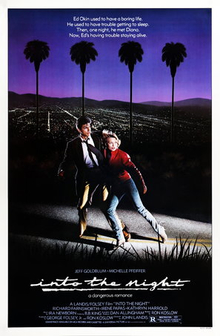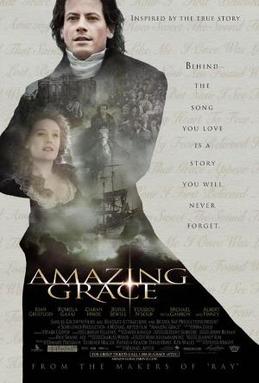Click on title to link to Karl Liebknecht's famous leaflet "The Main Enemy Is At Home" distributed In Germany in the heat of World War I and under penalty of arrest. For that alone Karl stands as a hero of the international working class movement.
By Frank Jackman
History in the conditional, what might have happened if this or that thing, event, person had swerved this much or that, is always a tricky proposition. Tricky as reflected in this piece’s commemorative headline. Rosa Luxemburg the acknowledged theoretical wizard of the German Social-Democratic Party, the numero uno party of the Second, Socialist International, which was the logical organization to initiate the socialist revolution before World War II and Karl Liebknecht, the hellfire and brimstone propagandist and public speaker of that same party were assassinated in separate locale on the orders of the then ruling self-same Social-Democratic Party. The chasm between the Social-Democratic leaders trying to save Germany for “Western Civilization” in the wake of the “uncivilized” socialist revolution in Russia in 1917 had grown that wide that it was as if they were on two different planets, and maybe they were.
(By the way I am almost embarrassed to mention the term “socialist revolution” these days when people, especially young people, would be clueless as to what I was talking about or would think that this concept was so hopelessly old-fashioned that it would meet the same blank stares. Let me assure you that back in the day, yes, that back in the day, many a youth had that very term on the tips of their tongues. Could palpably feel it in the air. Hell, just ask your parents, or grandparents.)
Okay here is the conditional and maybe think about it before you dismiss the idea out of hand if only because the whole scheme is very much in the conditional. Rosa and Karl, among others made almost every mistake in the book before and during the Spartacist uprising in some of the main German cities in late 1918 after the German defeat in the war. Their biggest mistake before the uprising was sticking with the Social Democrats, as a left wing, when that party had turned at best reformist and eminently not a vehicle for the socialist revolution, or even a half-assed democratic “revolution” which is what they got with the overthrow of the Kaiser. They broke too late, and subsequently too late from a slightly more left-wing Independent Socialist Party which had split from the S-D when that party became the leading war party in Germany for all intents and purposes and the working class was raising its collective head and asking why.
The big mistake during the uprising was not taking enough protective cover, not keeping the leadership safe, keeping out of sight like Lenin had in Finland when things were dicey in 1917 Russia and fell easy prey to the Freikorps assassins. Here is the conditional, and as always it can be expanded to some nth degree if you let things get out of hand. What if, as in Russia, Rosa and Karl had broken from that rotten (for socialism) S-D organization and had a more firmly entrenched cadre with some experience in independent existence. What if the Spartacists had protected their acknowledged leaders better. There might have been a different trajectory for the aborted and failed German left-wing revolutionary opportunities over the next several years, there certainly would have been better leadership and perhaps, just perhaps the Nazi onslaught might have been stillborn, might have left Munich 1923 as their “heroic” and last moment.
Instead we have a still sad 100th anniversary of the assassination of two great international socialist fighters who headed to the danger not away always worthy of a nod and me left having to face those blank stares who are looking for way forward but might as well be on a different planet-from me.
By Frank Jackman
History in the conditional, what might have happened if this or that thing, event, person had swerved this much or that, is always a tricky proposition. Tricky as reflected in this piece’s commemorative headline. Rosa Luxemburg the acknowledged theoretical wizard of the German Social-Democratic Party, the numero uno party of the Second, Socialist International, which was the logical organization to initiate the socialist revolution before World War II and Karl Liebknecht, the hellfire and brimstone propagandist and public speaker of that same party were assassinated in separate locale on the orders of the then ruling self-same Social-Democratic Party. The chasm between the Social-Democratic leaders trying to save Germany for “Western Civilization” in the wake of the “uncivilized” socialist revolution in Russia in 1917 had grown that wide that it was as if they were on two different planets, and maybe they were.
(By the way I am almost embarrassed to mention the term “socialist revolution” these days when people, especially young people, would be clueless as to what I was talking about or would think that this concept was so hopelessly old-fashioned that it would meet the same blank stares. Let me assure you that back in the day, yes, that back in the day, many a youth had that very term on the tips of their tongues. Could palpably feel it in the air. Hell, just ask your parents, or grandparents.)
Okay here is the conditional and maybe think about it before you dismiss the idea out of hand if only because the whole scheme is very much in the conditional. Rosa and Karl, among others made almost every mistake in the book before and during the Spartacist uprising in some of the main German cities in late 1918 after the German defeat in the war. Their biggest mistake before the uprising was sticking with the Social Democrats, as a left wing, when that party had turned at best reformist and eminently not a vehicle for the socialist revolution, or even a half-assed democratic “revolution” which is what they got with the overthrow of the Kaiser. They broke too late, and subsequently too late from a slightly more left-wing Independent Socialist Party which had split from the S-D when that party became the leading war party in Germany for all intents and purposes and the working class was raising its collective head and asking why.
The big mistake during the uprising was not taking enough protective cover, not keeping the leadership safe, keeping out of sight like Lenin had in Finland when things were dicey in 1917 Russia and fell easy prey to the Freikorps assassins. Here is the conditional, and as always it can be expanded to some nth degree if you let things get out of hand. What if, as in Russia, Rosa and Karl had broken from that rotten (for socialism) S-D organization and had a more firmly entrenched cadre with some experience in independent existence. What if the Spartacists had protected their acknowledged leaders better. There might have been a different trajectory for the aborted and failed German left-wing revolutionary opportunities over the next several years, there certainly would have been better leadership and perhaps, just perhaps the Nazi onslaught might have been stillborn, might have left Munich 1923 as their “heroic” and last moment.
Instead we have a still sad 100th anniversary of the assassination of two great international socialist fighters who headed to the danger not away always worthy of a nod and me left having to face those blank stares who are looking for way forward but might as well be on a different planet-from me.


